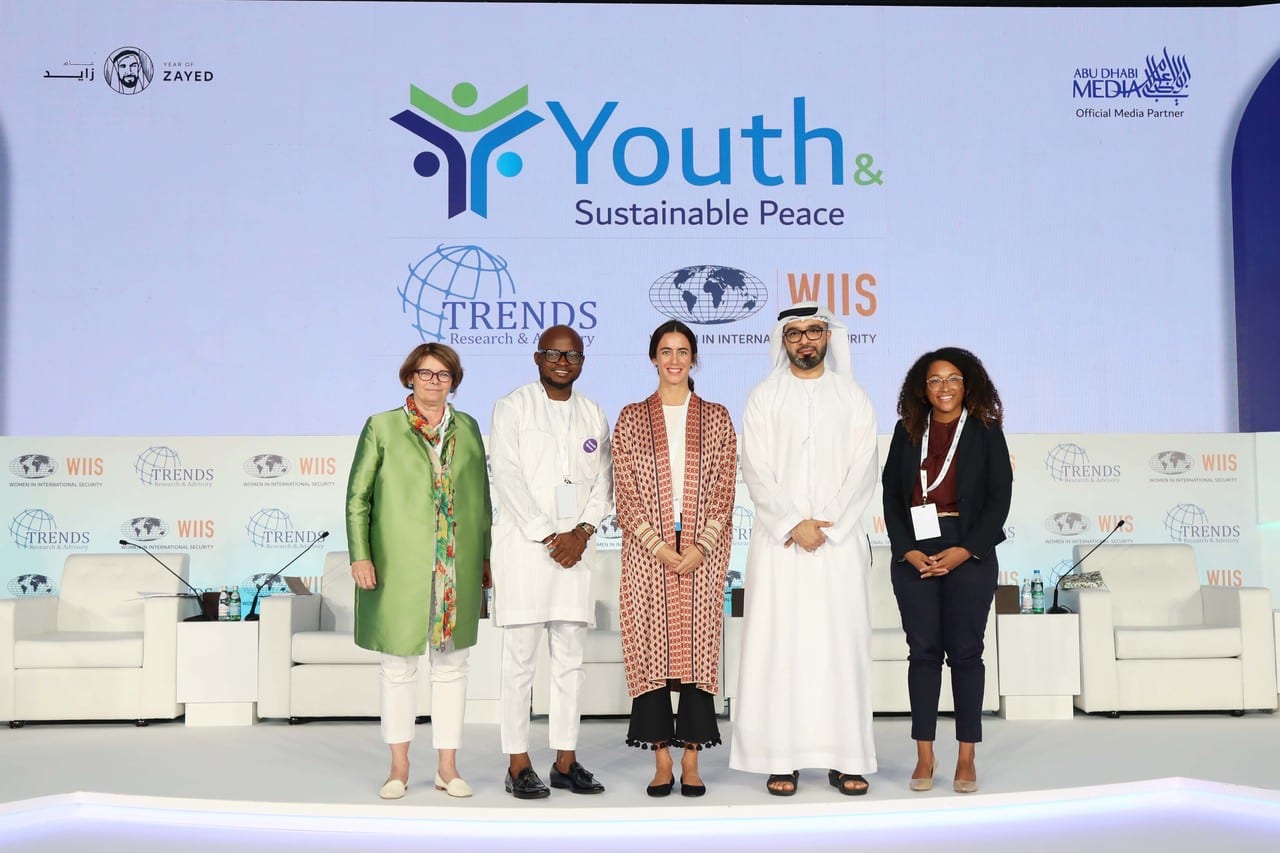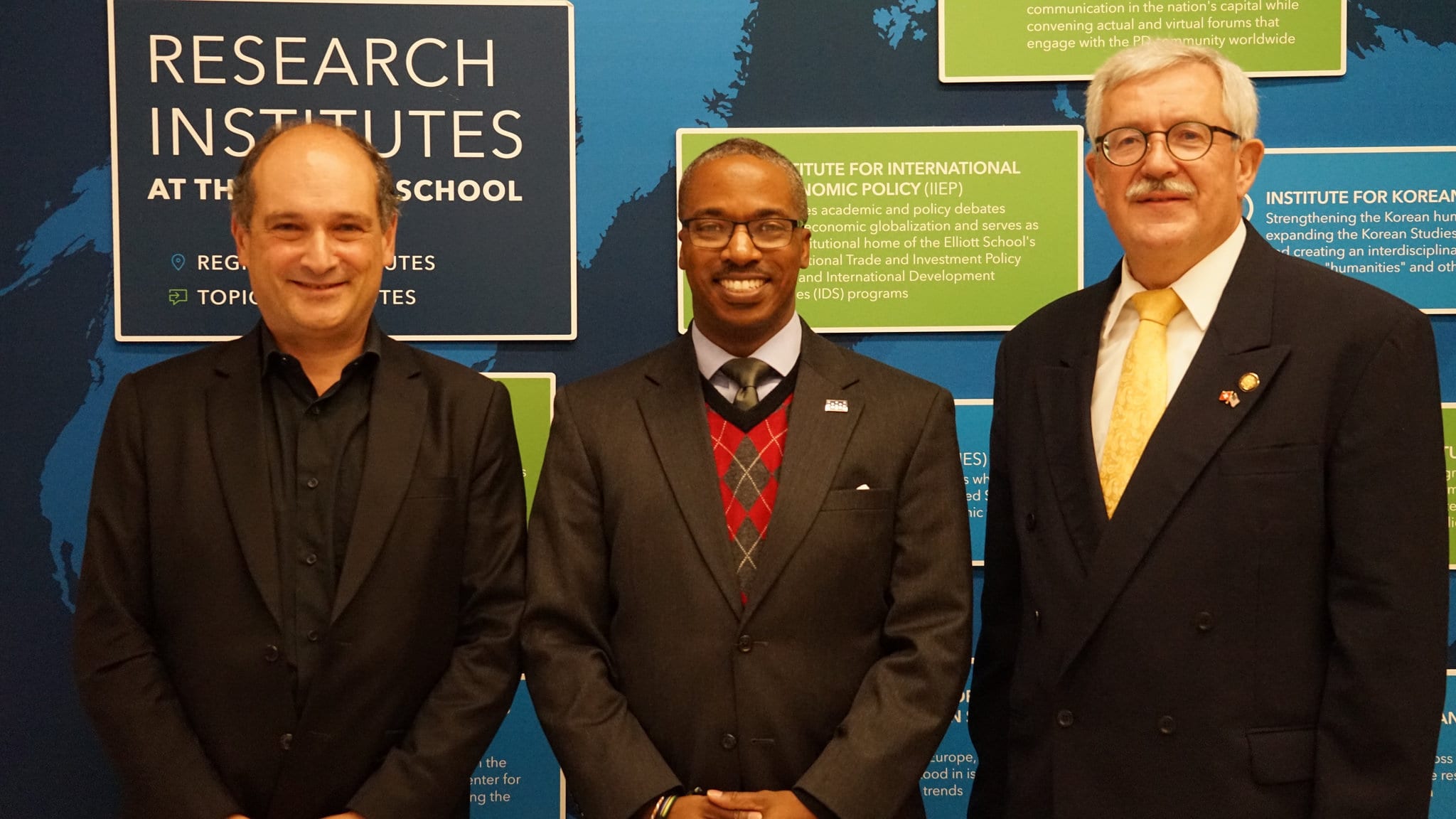Dear Elliott School Students, Faculty, Staff, and Friends:
Let me begin by saying that as finals season rapidly approaches, I urge those of you who are students to exercise self-care. I know you’ll be studying hard. Remember to also eat healthly healthfully, to exercise, and to get enough sleep. Keep in mind, too, that we have set aside December 6 as “stress-less” day, when you can pause a moment to hug a therapy dog, get a free massage, participate in guided meditation, decorate cookies, and paint pottery.
As we close out the calendar year, we will be wishing farewell to some long-standing faculty members. I’d like to thank retiring faculty Professors Henry Nau, Ed McCord and Ronald Spector who have dedicated their careers to teaching, research and service here at the Elliott School. They leave an enduring legacy and will be sorely missed by colleagues and students.
And finally, I want to share a few thoughts about cultivating civil discourse in our community. In October, during Colonials Weekend, GW President Thomas LeBlanc led a Q&A session with parents, students, and alumni. He called upon the GW community to be a “role model for civil discourse.”
How do we at the Elliott School go about doing this? In the words of former United States President John F. Kennedy, “It is incumbent upon all of us to encourage a spirit of tolerance, not only from government, but from one group within the community toward another. Tolerance implies no lack of commitment to one’s own beliefs. Rather, it condemns the oppression or persecution of others.”
It is too easy to simply say that we as a school are committed to sustaining a safe and welcoming campus for all members of our community, regardless of religious belief, race, or gender identity.
We know that the rights and welfare of all groups are fundamental values here. But how do we live that truth? I challenge each of you, in the weeks and months to come, to be deliberate in finding your own way, through action or expression, to be a role model for civil discourse. I invite you to share your experiences via the Elliott School’s social media channels.
Each day, I am reminded by how much the success of our mission depends on all of us. Thank you for the many ways you contribute to our community. I am honored to serve as your dean, and I am immensely proud of the work we do to make the world a more tolerant and peaceful place.
Warm wishes,
Dean B










